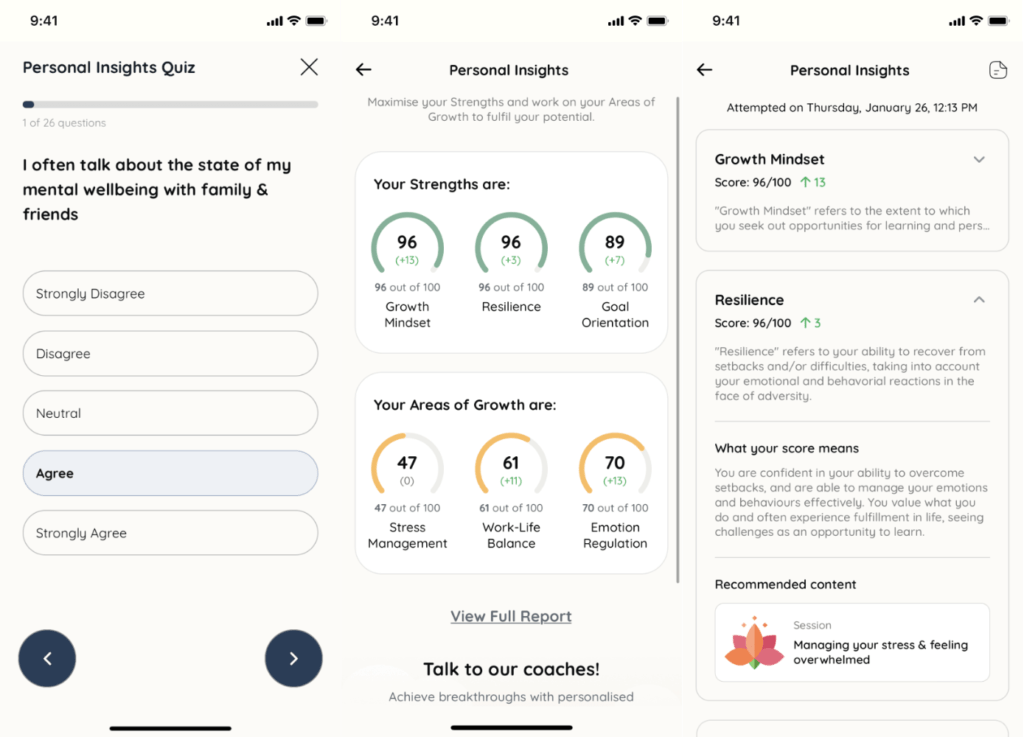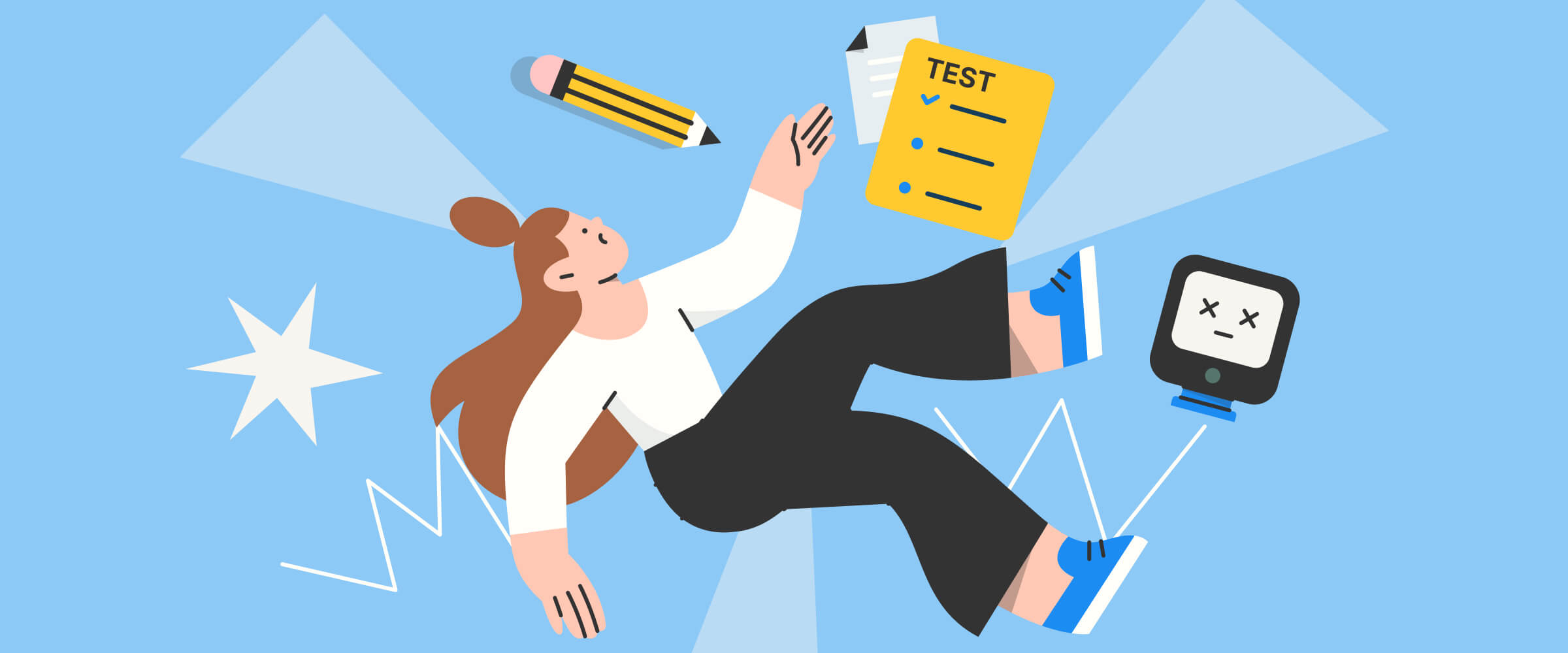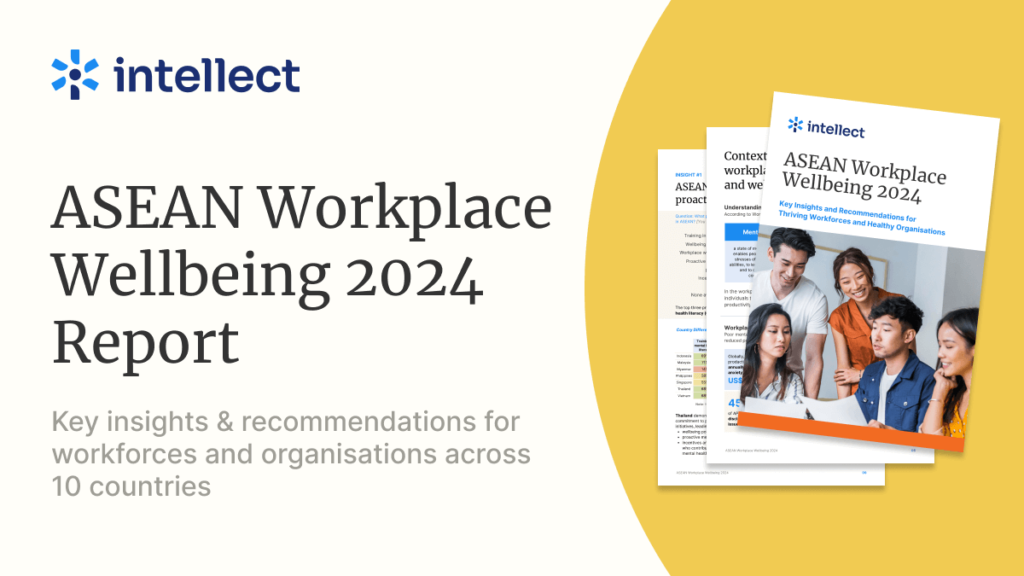This article was contributed by an organisational psychologist based in one of Singapore’s government agencies. She is also the author of How to measure employee wellbeing in 4 stages, according to an organisational psychologist.
Ah, the elusive hunt for the perfect candidate – a task that has perplexed HR and talent acquisition professionals for ages. You’ve likely spent countless hours reviewing resumes, conducting interviews, and searching high and low for that ideal match. And now, you’re considering using personality tests in hiring.
As an organisational psychologist, I see the appeal. But before jumping on the bandwagon, it’s important to understand the potential pitfalls of using personality tests in hiring. While they may seem useful, they have limitations that must be considered before being integrated into the recruitment process.
How important are personality traits?

Using personality tests in hiring can help you assess a candidate’s natural preferences, tendencies, characteristics, and traits, such as conscientiousness or social extroversion. These tests vary from popular commercial tools like NEO Personality Inventory, Myers-Briggs Type Inventory (MBTI), HEXACO, and Hogan Personality Assessments to non-commercial tools like the International Personality Item Pool (IPIP).
Finding the right job-fit can be as tricky as finding a needle in a haystack. But personality tests can help hiring managers take a well-informed leap of faith. Say, for instance, you’re looking to fill a customer service role – extroversion would probably come in handy. So if a candidate leans towards social extroversion, they’re more likely to ace the job.
Certain personality traits of employees can have a positive impact on a company’s outcomes. Take conscientiousness and emotional stability, for instance. Research has shown that they may be related to better job performance, employee satisfaction (Silva, 2006), engagement (Kim Shin & Swager, 2009), and organisational citizenship behaviours (Ilies, Fulmer, Spitzmuller, & Johnson, 2009). On the flip side, lower emotional stability (or the tendency to be easily worried or sad) may be associated with burnout (Kim Shin & Swager, 2009). Therefore, keeping an eye out for these traits during recruitment may boost your chances of hiring someone who will be a rockstar in the long haul.
Adding a personality questionnaire to your selection process may seem like a no-brainer, but while these tools offer HR professionals and hiring managers valuable data, they aren’t perfect. Below are three things to consider before adopting one.
Expert advice on using personality tests in hiring
1. Understand your tool of choice

Let’s begin our quest for the right tool with a crucial caveat: it’s not enough to simply add these assessments to your recruitment process like an afterthought. A thoughtful, holistic and evidence-based approach is necessary to reap the benefits of such tools.
Choosing the right personality tool can be a daunting task. With so many options available in the market, ranging from those that come with a recurrent cost per administration to those that are free-to-use but more academic in nature, it’s easy to feel overwhelmed.
You can choose from questionnaires that measure a range of factors or facets, or focus on specific traits like conscientiousness or ‘dark traits’. According to the Hogan Development Survey, the latter refers to personality traits that emerge in times of stress, such as scepticism and mischief.
It’s worth noting that some tools, such as the Myers-Briggs Type Indicator (MBTI), were never intended for use in recruitment, while others, like the Occupational Personality Test, were specifically developed for that purpose. So, before you even start using personality tests in hiring, it’s important to take the time to determine which one is the right fit for your needs.
To that end, we recommend starting with a validated personality measure, such as the Big Five personality traits. These five dimension – openness to experience, conscientiousness, extroversion, agreeableness, and neuroticism – have been rigorously studied and validated by researchers worldwide, and serve as a solid foundation for various personality assessments like the NEO Personality Inventory, HEXACO Personality assessment, and IPIP.
2. Formulate the hiring criteria carefully

Once you’ve determined which personality tool to use, you’ll want to ensure that your hiring criteria is rooted in evidence. In the process, hiring managers will do well to embrace diversity and assess candidates with a growth mindset.
Evidence
The selection process should be ethically sound and defensible. Gone are the days of haphazardly personality items simply because they appear to be relevant to the job. Instead, modern HR practices rely on rigorous job profiling exercises, in-depth analysis of HR data, and alignment with the company’s values and desired culture to determine the right competencies to focus on. With careful consideration of personality traits that correlate with positive or negative outcomes, practitioners can build a successful selection process that sets the organisation up for success.
Diversity
That said, it’s important to keep in mind that overly rigid or narrow personality criteria may not be in the best interest of the company’s long-term growth.
While it’s tempting to seek out candidates who fit a specific mould, the best teams are often composed of individuals with diverse backgrounds, skills, and strengths that complement each other. This diversity of thought and perspective can lead to better ideas and execution of strategies, ultimately working towards a common team goal. So, HR practitioners can approach the selection process with an open mind and a willingness to embrace individual differences.
Growth Mindset
It’s tempting to think that we can fully assess an employee’s potential at recruitment based on their existing personality traits and skills, but that’s a bit like trying to predict the weather a year in advance. Sure, you might get lucky, but most of the time you’re going to be off the mark.
The problem with this approach is that it can create a maladaptive workplace culture that stifles learning and development. Pigeonholing employees is like planting a tree in a pot. It might grow for a while, but will eventually hit a wall. So, instead of taking a fixed mindset approach that assumes talent and potential are set in stone at recruitment, HR practitioners embrace a growth mindset that stretches the abilities of employees beyond their leaders’ initial assessments.

3. Review both your findings and tool
Informed Interpretation
Obtaining longitudinal HR data, including performance and turnover metrics, can be a time-consuming process. That’s why it’s crucial to have a team of skilled practitioners who possess a deep understanding of using personality tests in hiring, and can adeptly interpret personality reports for the chosen tool.
Outsourcing personality testing may seem like a quick fix, but beware of the potential pitfalls. It can create integration issues with your recruitment process, and even impede the training of internal interviewers and stakeholders on how to use and comprehend the tool effectively. You don’t want to miss out on top talent due to poor implementation, and it pays to invest in a team who knows the ins and outs.
Tool Evaluation
Lastly, just because a tool was validated in the past doesn’t mean they will continue to perform optimally for your organisation. To ensure your recruitment process remains relevant and successful, you need to regularly validate your personality test of choice. Take a look at various performance metrics such as promotion rates, career potential, turnover, and even counterproductive work behaviour. Don’t let demographic shifts in your applicant pool catch you off guard – stay on top of the latest research and trends to ensure your tools continue to accurately identify the cream of the crop.
Get an overview of your workforce with Intellect Dimensions
Missed the chance to use personality tests to hire your workforce? Fortunately, Intellect Dimensions can help you gain a better understanding of your employees.

Intellect Dimensions is a 26-item framework that measures your workforce’s wellbeing and productivity across five aspects: psychological resources, work outcomes, wellbeing, stigma, and absenteeism. Do your employees have a growth mindset? How goal-oriented are they? Can they manage stress and control their emotions? These are questions that our tool aims to answer, while ensuring your employees’ data privacy and confidentiality.
By using anonymous and aggregated data, you can make better-informed decisions about your organisation’s wellbeing strategy. If you’re unsure where to start, our client success managers are available to collaborate with you to meet your employees’ unique needs.





